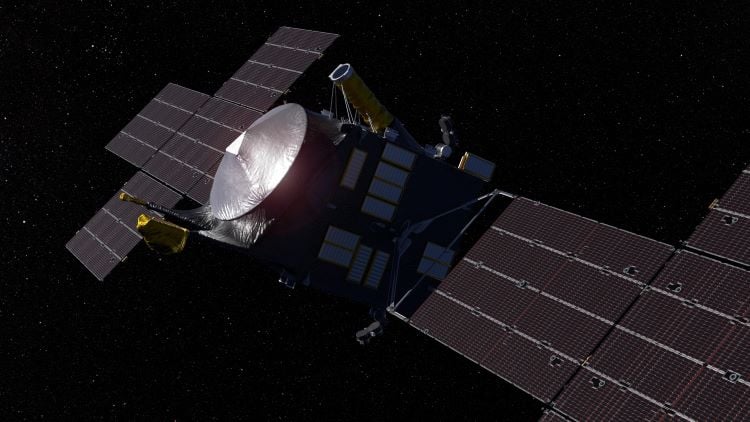An independently appointed review board recently announced that NASA, their Jet Propulsion Laboratory (JPL), and the California Institute of Technology (Caltech) have exceeded expectations in taking steps to ensure the successful launch of the metal-rich-asteroid-hunting Psyche mission this October. This comes after Psyche's initial launch date was delayed from August 2022 due to late delivery of the spacecraft's flight software and testing equipment, which prevented engineers from performing the necessary checkouts prior to launch.
"I am pleased with the independent review board's resoundingly positive assessment of JPL's hard work in correcting the issues outlined in the board's original report," Dr. Nicola Fox, associate administrator of NASA's Science Mission Directorate in Washington, said in the statement. "We know the work is not over. As we move forward, we will work with JPL to ensure these implemented changes continue to be prioritized to position Psyche and the other missions in JPL's portfolio for success."
This most recent development comes after the independent review board delivered a report in November 2022 outlining extensive steps that needed to be taken to ensure a successful mission going forward. As part of their May 30 report, the review board conducted extensive follow-up evaluations with JPL, the Psyche mission, and Caltech, and have stated all parties have exceeded expectations and are on track for an October 2023 launch window.
The May 30 report delivered wide praise to JPL senior leadership, JPL Line organization, the Psyche Project, and the Psyche Principal Investigator, calling the October 2023 Launch Readiness Date (LRD) as "credible and the overall probability of mission success is high."
"We convened this board weeks after I stepped in as director and addressing the issues it raised has been a central focus in my first year as director of JPL. The results are gratifying," said JPL Director Dr. Laurie Leshin. "Our goals went beyond getting Psyche to the launch pad to improving JPL across the board as we work on missions that will help us better understand Earth, explore the solar system and the universe, and search for signs of life. Our strong response to the board's findings reinforces the notion that JPL can solve any problem with the right focus and attention."
Approved in January 2017, NASA’s Psyche mission will be sending a spacecraft to asteroid 16 Psyche, which is a metallic asteroid that resides in the asteroid belt and is hypothesized to be the remnants of the iron core of a planetary embryo. Since studying planetary cores is incredibly difficult, this mission offers an opportunity to gain insight into the formation and evolution of planetary objects within our solar system.
With the new launch date of October 5, 2023, the Psyche spacecraft is scheduled to perform a gravity-assist maneuver at Mars sometime in 2026, with a scheduled arrival at 16 Psyche sometime in August 2029. Upon arrival, the spacecraft is scheduled to orbit 16 Psyche for approximately 21 months while performing gradual orbit degradation maneuvers, meaning the spacecraft will decrease its altitude to the asteroid while conducting necessary science objectives.
What new insights will Psyche give us about metallic asteroids and planetary embryos during its mission, and what can this teach us about the formation and evolution of planetary objects in our solar system and beyond? Only time will tell, and this is why we science!
As always, keep doing science & keep looking up!
 Universe Today
Universe Today

